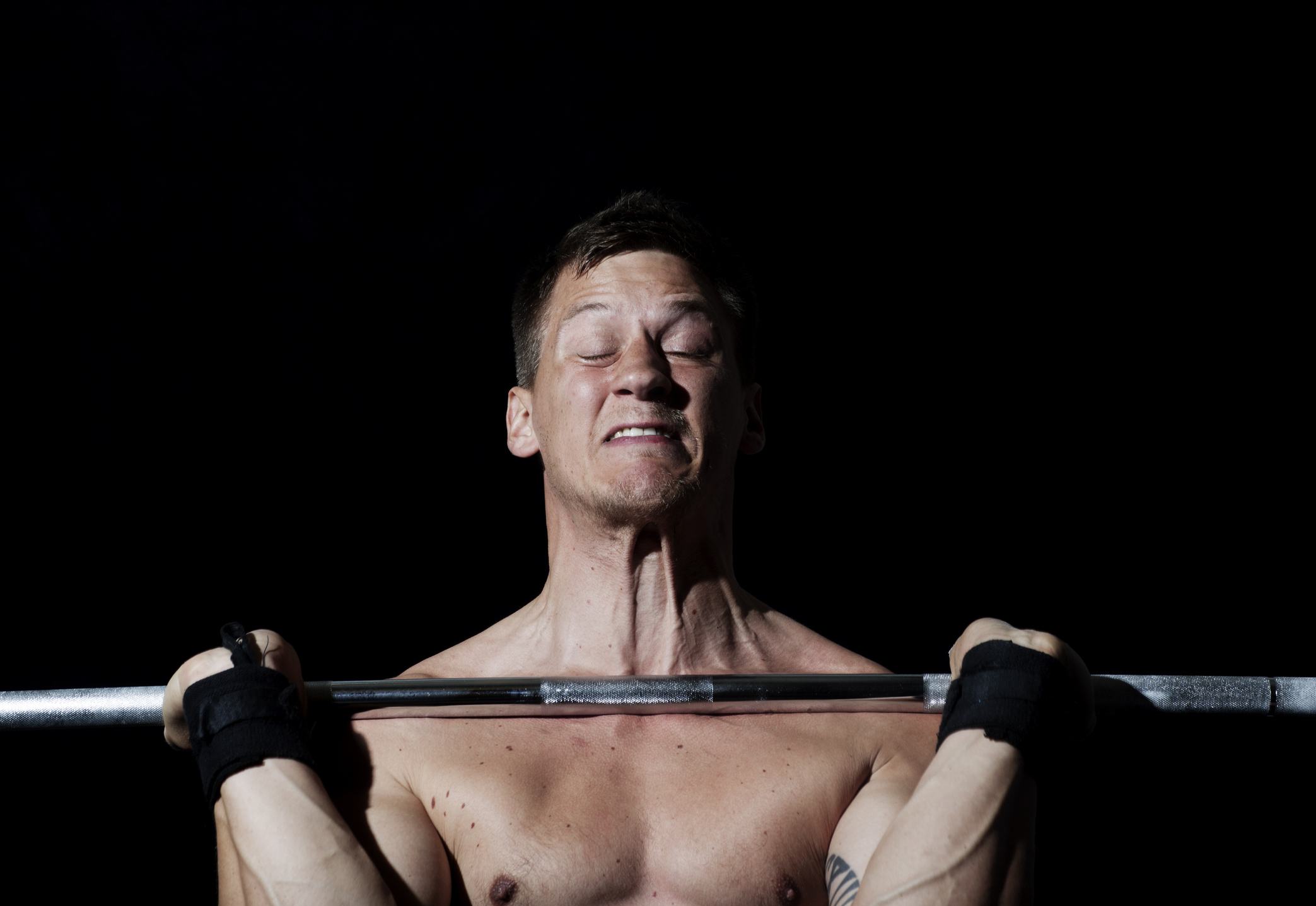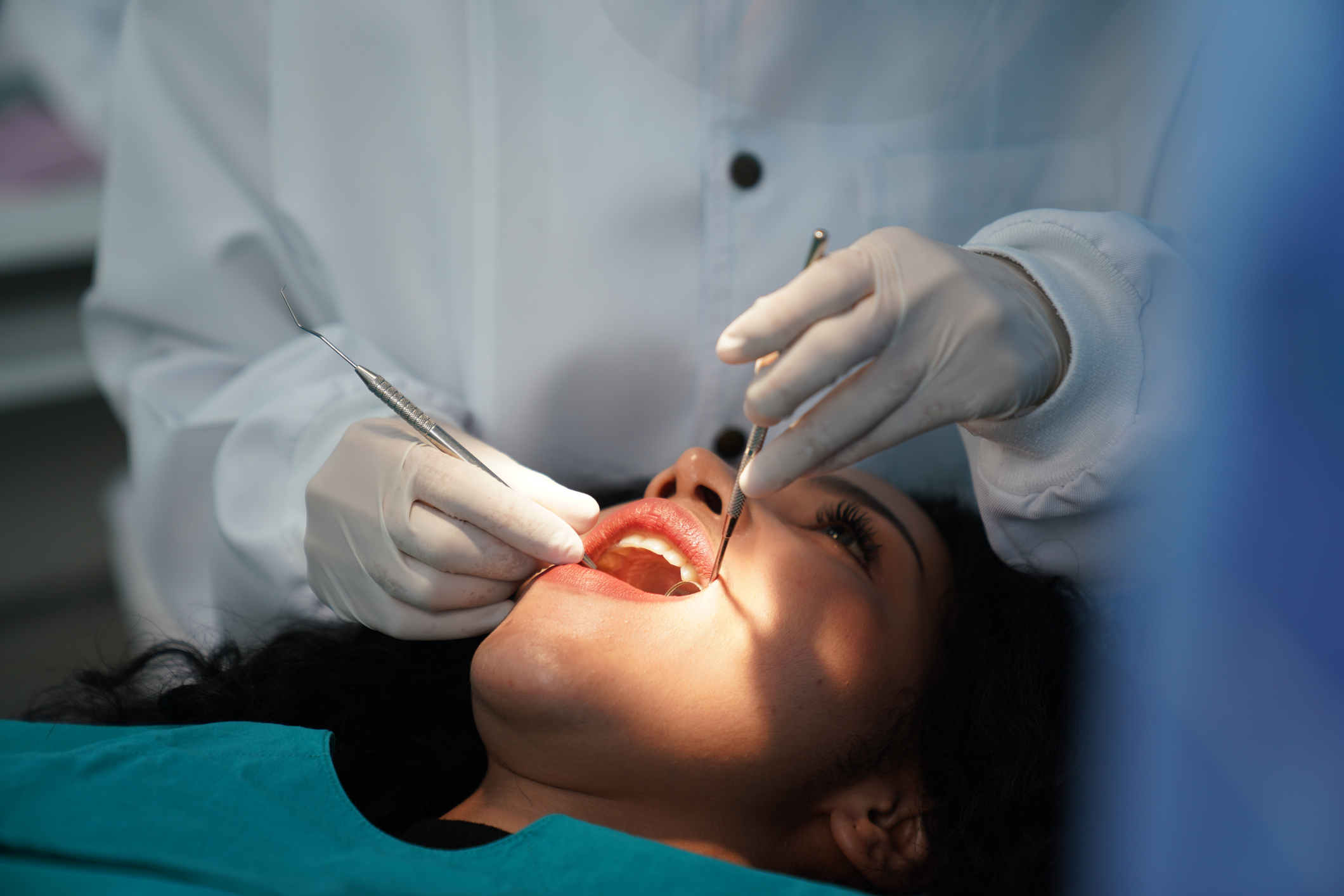" The jaw is already the most - used articulation in the body , so it should n’t be forced to move even more … " — Dr. Priya Mistry
When it comes to well - being , your jaw health likely is n’t the first thing that come to intellect . However , expert say many twenty-four hour period - to - Clarence Shepard Day Jr. issues — everything from concern to ear hurting — can be a sign of jaw problem .
“ First and foremost , jaw reefer are the most - used articulation in the body , ” saidDr . Priya Mistry , atemporomandibular joint ( TMJ ) dentistin Washington state , who tot that we even habituate our jaw when we sleep . “ The simple turn of swallowing makes our jaw move , ” Mistry said .

sealed habits can cause vesture and tear on your jaw , resulting in some of the military issue mentioned above , in addition to commonTMJ dysfunctions , which mess with your jaw joints and muscle .
Below , expert share the habits they keep off to keep their jaws healthy .
1. They don’t lean their hand against their jaw.
Many , many the great unwashed senselessly tend their deal against their jaw — you ’ve probably done it while sit at your desk at study or while listen to a acquaintance talk over dinner .
This is a bad habit for jaw wellness because it puts too much sideways atmospheric pressure on the jaw , which is build up for up - and - down and forward - and - back movement , state Mistry . Leaning your script on your jaw too often can lead to jaw clicking , pain or pop , she noted .
2. They don’t clench their teeth.
“ Our tooth should really only arrive together when we swallow … when we ’re address , our teeth should n’t touch , when we ’re chewing , we have food between the teeth , and then we swallow [ and ] our teeth should separate , ” saidDr . Karyn Kahn , a dentist who focuses on jaw disorders at Cleveland Clinic in Ohio .
“ But some citizenry find that they ’re walking around every day with their teeth in contact , and that uses a mountain of muscle and it place exuberant violence on the teeth and also on the jaw , ” Kahn added .
We live in stressful times ― constant e-mail ping and societal media notifications do n’t help ― intend many people to keep their jaws clench all day long .

Jaw clinch can cause TMJ rheumatic changes , in addition to inflammation . What ’s more , clenching “ requires a lot of muscleman strength , and so the muscles can develop … muscular tissue annoyance … and this in turn can result in headaches , ear bother , any telephone number of symptoms , ” Kahn said .
The same goes for grinding your teeth , which many people do at nighttime , Kahn added .
Signs that you ’re grinding your teethat nighttime include vexation , tooth pain and tooth sensitiveness . you could also talk to your dental practitioner to see if they point out any tooth put on or nick teeth , which can also be sign of grind .

Stress is a adult reason many folks grind and clench their tooth , Dr. Michael Lerner , a Yale Medicine ear , nose and throat doctor , antecedently told HuffPost . If you suspect this may be why you ’re doing the doings , it could be a well estimate to talk to a mental wellness professional about the stressor in your life or to consider implementing more self - care — like regular fittingness , a nutritious dieting and time spent doing things you revel — into your sprightliness .
Alcohol , caffeine and cigarette smoking can alsoprovoke nighttime dentition grinding , so cutting back on those things can help curb the substance abuse . What ’s more , Kahn recommends a nighttime mouthguard to protect your teeth from grinding . Your dentist can help you get fit out with one that fits your mouth .
3. They don’t discount posture’s impact on jaw health.
Mistry say it ’s important that you ’re witting of your posture when sitting in front of a computer . Every inch your head is forward supply an additional 10 pounds of air pressure on your neck opening , which then run up and puts force per unit area on your jaw , too , she say .
4. They don’t open items with their teeth.
Not only can afford bottles or packages with your teeth mess up your pearly-white Edward D. White , but this habit can also mess with your jaw health , harmonise to Mistry .
When you give something with your teeth , you have to shift your jaw to get your teeth to move in a sure way — “ it is a lateral effort that is spoilt for the jaw and not mean to fall out , ” Mistry noted .
5. They don’t chew gum excessively.
agree to Kahn , glue chewing can also be detrimental to your jaw health . The habit causes unreasonable jaw front and can take a chance overload the joint or aggravating your jaw disc .
There is no one definition of excessive glue chew , Kahn explicate . For people with certain jaw disorders , chewing gum is never a good idea , while people with healthy jaws can usually manage it every so often .
Kahn recommends that you talk with your tooth doctor to determine if it ’s fine for you to chew gumwood based on your jaw and dental wellness .

6. They don’t chew pens or bite their nails.
Your jaw is not meant to be constantly propel ( which is another strike against gum - mastication ) , making habits like senselessly chewing pens or biting nails problematic , Mistry said .
The jaw is already the most - used articulatio in the physical structure , so it should n’t be forced to move even more by chewing pens or biting your nails . Plus , biting your nails introduce dirt and bacteria into the body , Mistry noted .
7. They don’t skip regular dental check-ups.
Kahn said that it ’s important that you get even dental check - ups — “ that will keep jaw wellness , in general , relatively good . ”
Beyond necessary tooth cleaning and mouth X - rays , these check - ups are also the time to talk to your dentist about any jaw - related vexation and account thing like jaw get through , popping or grating , Kahn added .
“ I would accent regular dental medical exam at least every six calendar month , ” Kahn said .

Not only will your teeth give thanks you for these regular appointments , but your jaw will , too . This clause originally appear onHuffPost .


